Download Report as a PDF ![]() | العربية
| العربية
The internal conflict and resulting humanitarian crisis embroiling South Sudan since December 2013 have exposed the country’s fragility. A weak national identity, ethnically based violence, a legacy of violent conflict resolution, personalized and patronage-based politics, weak institutional checks on the abuse of power, and the absence of encompassing leadership, among other factors, all pose obstacles to peacebuilding. As a result, envisaging a stable South Sudan has become increasingly difficult for many South Sudanese and external observers.
With regional and international diplomacy rightly focused on negotiating an immediate end to hostilities, the Africa Center for Strategic Studies has asked a selection of South Sudanese and international scholars, security practitioners, and civil society leaders to share their visions of the strategic issues South Sudan must address if it is to make a transition from its current state of dissimilation to a more stable reality. These visions, taken individually and collectively, are intended to help sketch out some of the priorities and prerequisites for transforming today’s highly fragmented security landscape in South Sudan to one in which its citizens are safe in their own country and are protected from external threats.
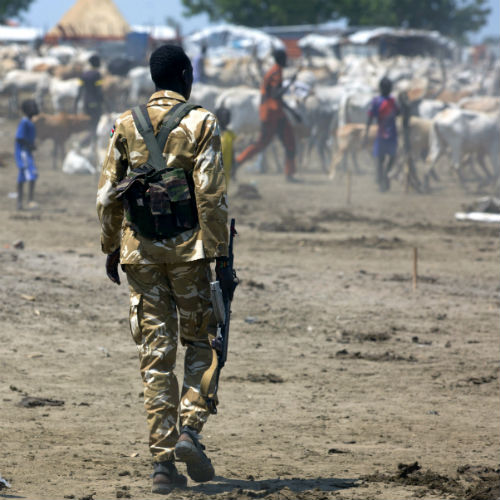 Three Trajectories Facing South Sudan
Three Trajectories Facing South Sudan
By Luka Kuol
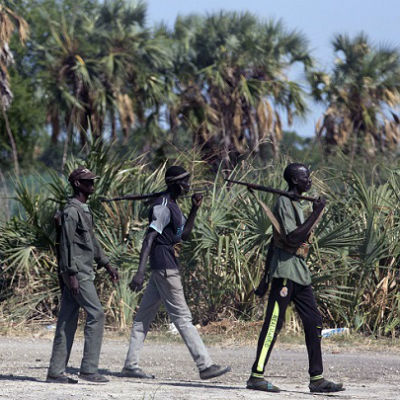 Taming the Dominant Gun Class in South Sudan
Taming the Dominant Gun Class in South Sudan
By Majak D’Agoôt
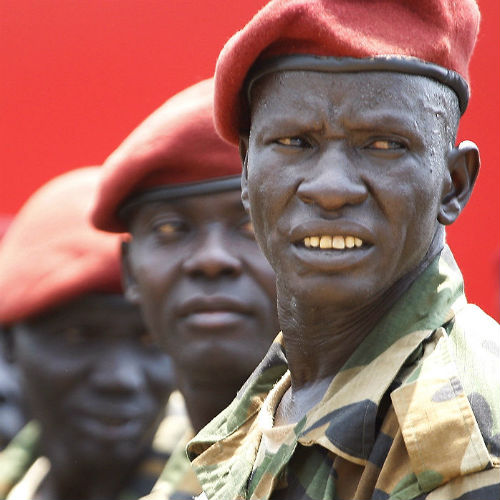 Security Sector Stabilization: A Prerequisite for Political Stability in South Sudan
Security Sector Stabilization: A Prerequisite for Political Stability in South Sudan
By Remember Miamingi
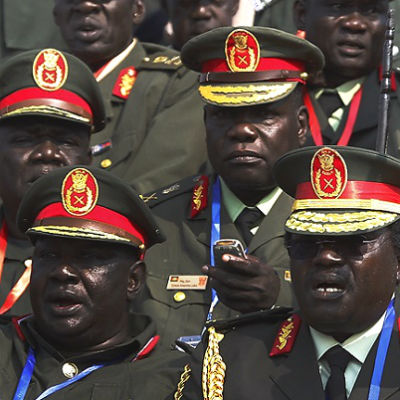 Durable Stability in South Sudan: What Are the Prerequisites?
Durable Stability in South Sudan: What Are the Prerequisites?
By Phillip Kasaija Apuuli
The internal conflict and resulting humanitarian crisis embroiling South Sudan since December 2013 has exposed the country’s fragility. A weak national identity, ethnically based violence, a legacy of violent conflict resolution, personalized and patronage-based politics, weak institutional checks on the abuse of power, and the absence of encompassing leadership, among other factors, all pose obstacles to peacebuilding. As a result, envisaging a stable South Sudan has become increasingly difficult for many South Sudanese and external observers.
With regional and international diplomacy rightly focused on negotiating an immediate end to hostilities, the Africa Center for Strategic Studies has asked a selection of South Sudanese and international scholars, security practitioners, and civil society leaders to share their visions of the strategic issues South Sudan must address if it is to make a transition from its current state of dissimilation to a more stable reality in the near to medium term. These visions, taken individually and collectively, are intended to help sketch out some of the priorities and prerequisites for transforming today’s highly fragmented security landscape in South Sudan to one in which its citizens are safe in their own country and can return to their homes and begin to rebuild their lives.
 Three Trajectories Facing South Sudan
Three Trajectories Facing South Sudan
By Luka Kuol
 Taming the Dominant Gun Class in South Sudan
Taming the Dominant Gun Class in South Sudan
By Majak D’Agoôt
 Security Sector Stabilization: A Prerequisite for Political Stability in South Sudan
Security Sector Stabilization: A Prerequisite for Political Stability in South Sudan
By Remember Miamingi
 Durable Stability in South Sudan: What Are the Prerequisites?
Durable Stability in South Sudan: What Are the Prerequisites?
By Phillip Kasaija Apuuli
The articles in this series do not necessarily reflect the views of the Africa Center for Strategic Studies.


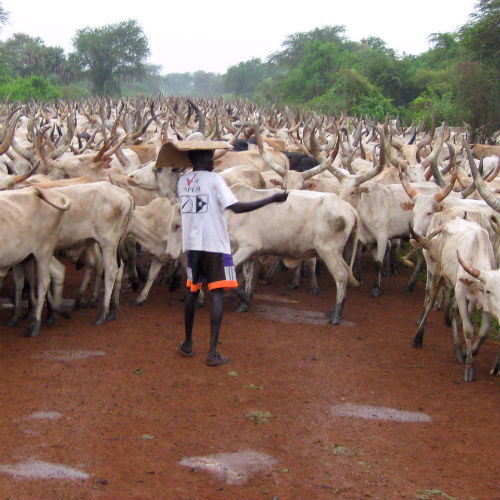 Blurring the Lines: Ethnicity, Governance, and Stability in South Sudan
Blurring the Lines: Ethnicity, Governance, and Stability in South Sudan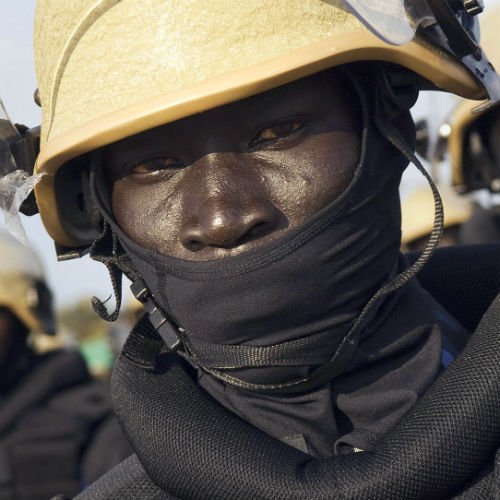 Confronting the Challenges of South Sudan’s Security Sector: A Practitioner Perspective
Confronting the Challenges of South Sudan’s Security Sector: A Practitioner Perspective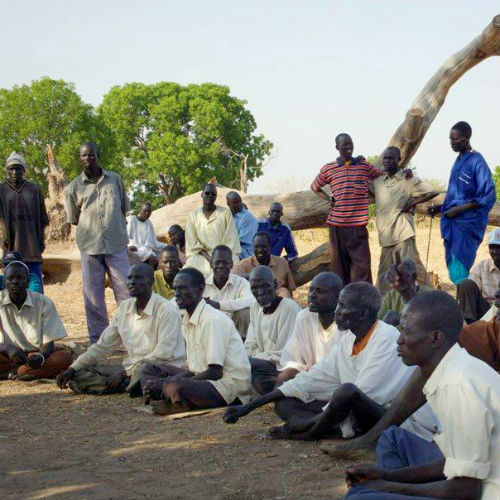 The Rule of Law and the Role of Customary Courts in Stabilizing South Sudan
The Rule of Law and the Role of Customary Courts in Stabilizing South Sudan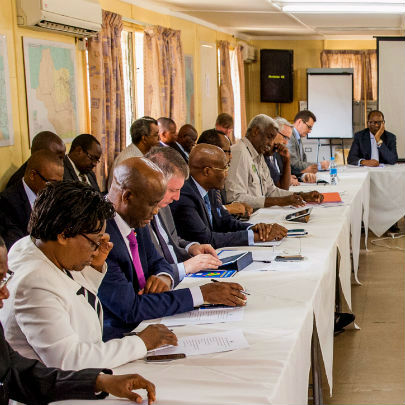 Navigating the Competing Interests of Regional Actors in South Sudan
Navigating the Competing Interests of Regional Actors in South Sudan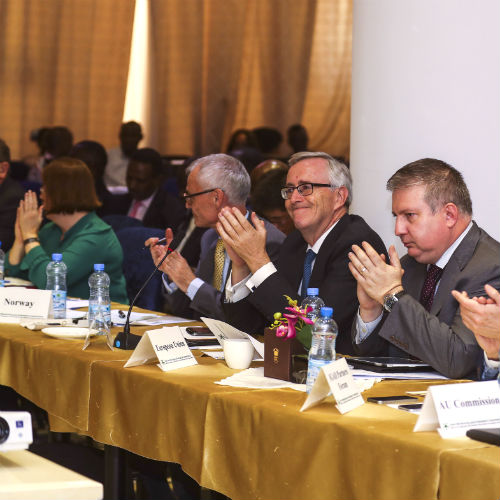 Context and the Limits of International Engagement in Realizing Durable Stability in South Sudan
Context and the Limits of International Engagement in Realizing Durable Stability in South Sudan